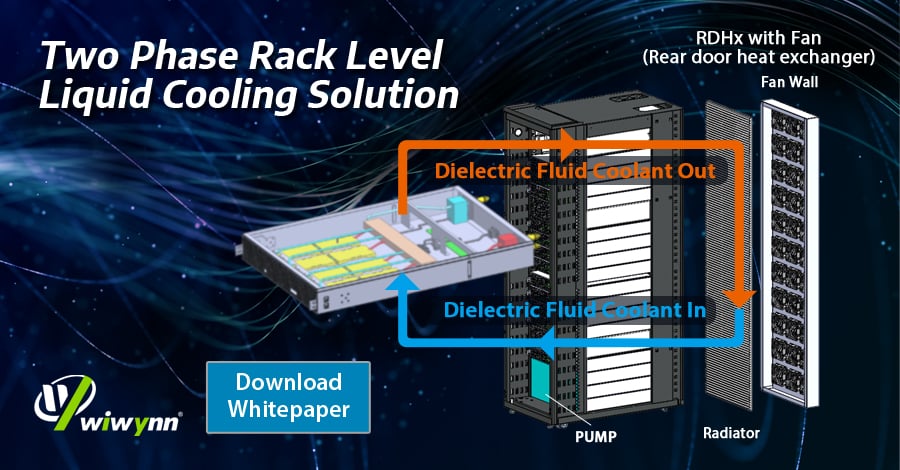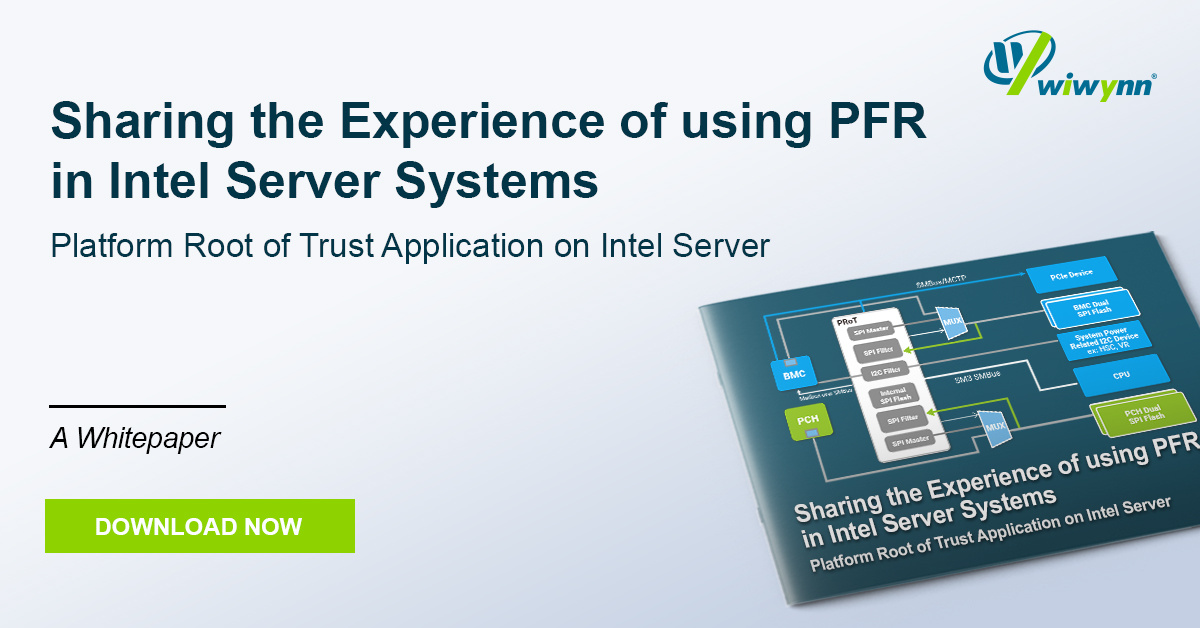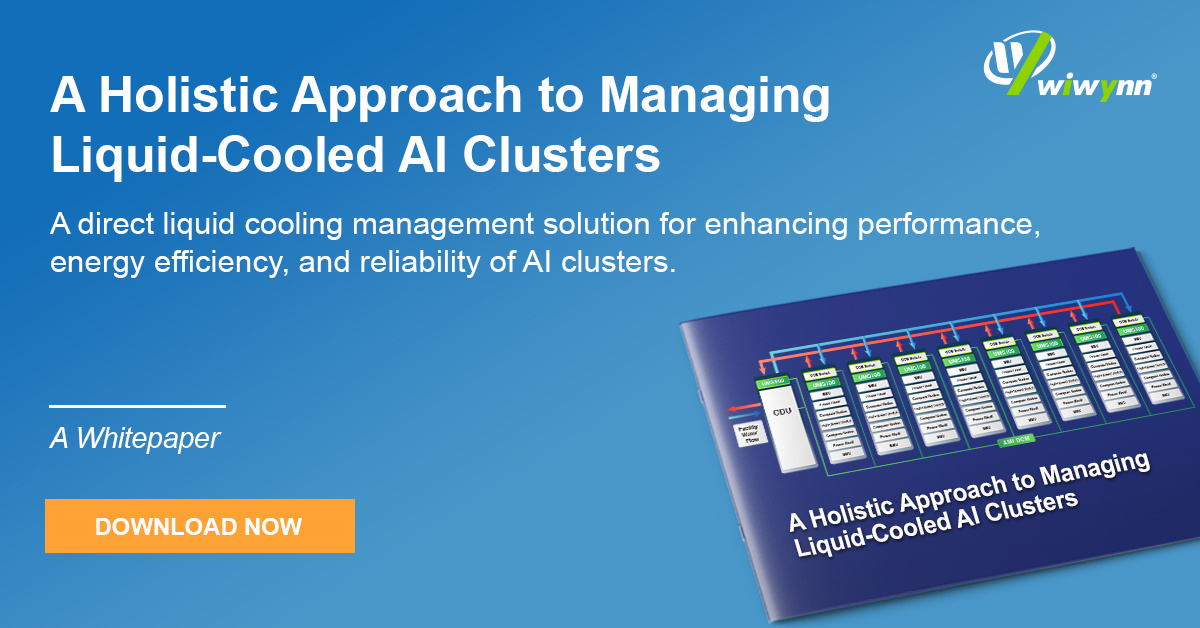White Paper: Platform Root of Trust Application on Intel Server
The white paper focuses on Wiwynn's implementation of Intel's Platform Firmware Resilience (PFR) in server systems, based on the NIST SP 800-193...

The power consumption of computing silicon, such as CPU and GPU, continues to push envelope of existing thermal solutions in IT technology. The demands of the thermal technologies for IT gears are not satisfied by functioning solutions only. High power efficiency is usually deterministic to the success of thermal solutions.
In this whitepaper, Wiwynn investigated a “Two phase Cooling” thermal solution for meeting upcoming challenges. Dielectric fluid is introduced as a working fluid that is pumped to hot chips and transported heat to the rear door heat exchanger (RDHx). The heat is then ejected from fluid to air. This solution takes advantages of the high power dissipating ability of liquid cooling in limited space. Dissipating heat to the hot aisle through RDHx requires no data center facility change. In addition, single- and two-phase liquid cooling systems are also discussed and evaluated. Controlled parameters are evaluated in the thermal model to derive the best efficient operation point.
The proposed solution extends the cooling solution to rack level gains more cooling area with bigger fans in the fan wall. By using dielectric fluid as the working liquid, liquid leakage will not result in short-circuits. Heat is finally transferred into the air so it requires no data center facility change and no serviceability change. The component temperature in the two-phase region is more uniform. Controlling the dielectric fluid in two-phase region will lead to higher cooling efficiency.
Leave your contact information to download the whitepaper.

The white paper focuses on Wiwynn's implementation of Intel's Platform Firmware Resilience (PFR) in server systems, based on the NIST SP 800-193...

1 min read
As thermal design power (TDP) for modern processors such as CPUs, GPUs, and TPUs exceeds 1 kW, traditional air cooling methods are proving...

The integration of advanced liquid cooling systems in AI clusters is essential for maintaining thermal stability and optimizing performance. Key...